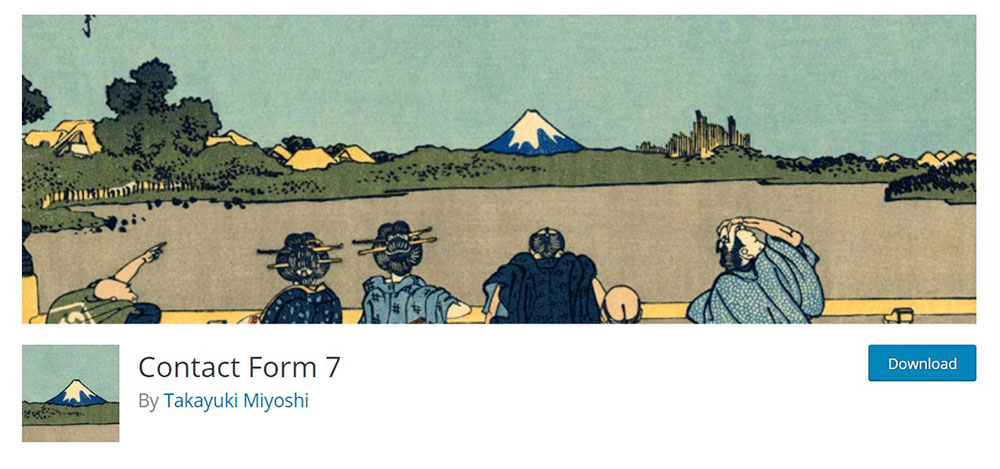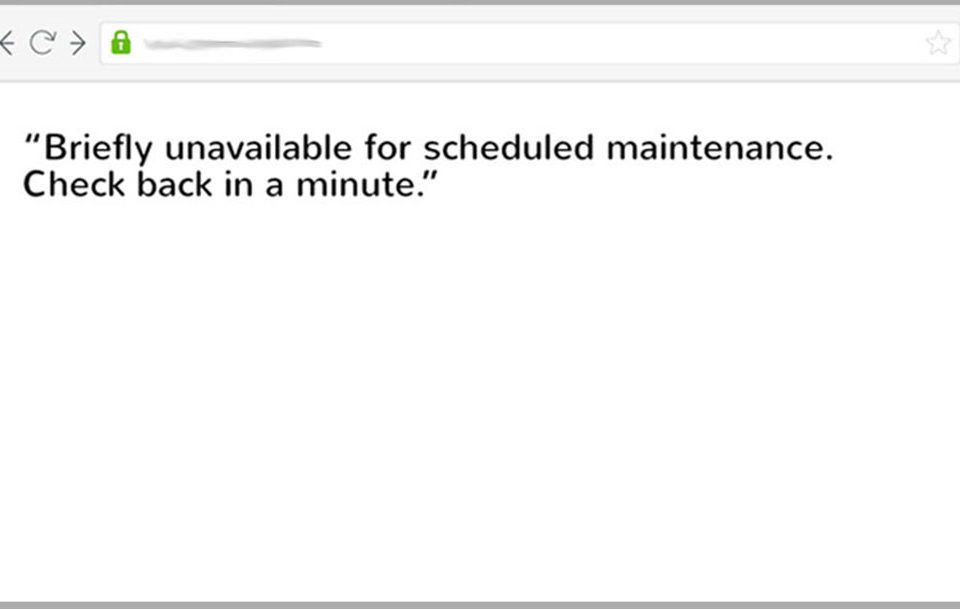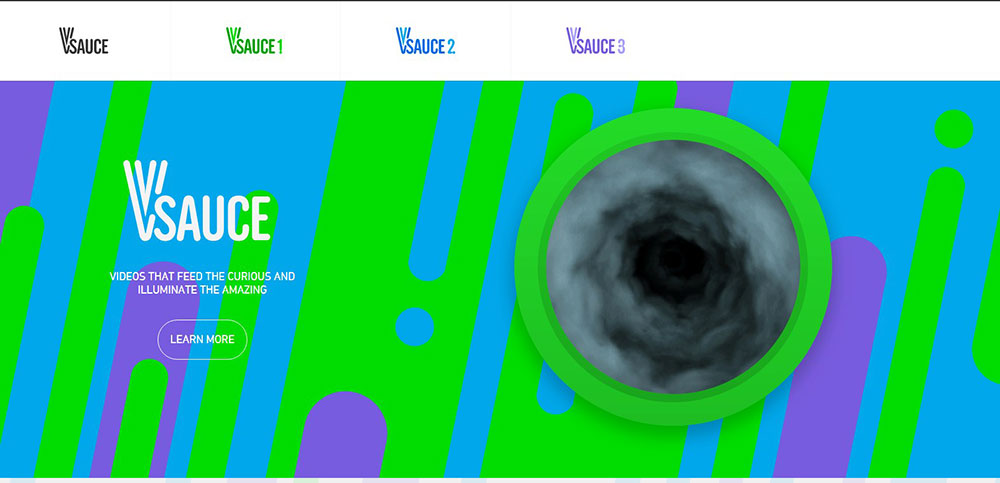
The Best Time-Wasting Websites You Can Browse to Avoid Burnout
September 29, 2023
Wix Alternatives That Will Get the Job Done Better
September 29, 2023When you design your WordPress site you want to make sure that everything is in place. The logo needs to be there, all the pages, menus, and so on. However, one of the most important parts of a website that sometimes gets neglected is the contact form.
In WordPress, the most popular plugins for this are Contact Form 7 vs. Gravity Forms, so in this article, we are going to pit them against each other to help you decide which one to choose between the two.
Overview
Before you can make a choice between Contact Form 7 vs. Gravity Forms, you need to understand more about what each one does so let's check them out. Here we have compiled an overview of each plugin along with a head-to-head comparison.
Contact Form 7
Contact Form 7 is easily one of the most known plugins for WordPress, having over 120 million downloads so far. As such, many WordPress users choose it to start with simply because of its immense popularity. Clearly, it’s got something good going for it.
So what does it do? Contact Form 7 is an HTML form builder that allows you to build your own forms using simple markup based on tags. These tags make up a form template, which is later rendered into HTML as a complete, custom contact form on your website.
Contact Form 7 can serve multiple different contact forms for various purposes and you can customize them the way you want. It supports Ajax-powered submitting, CAPTCHAs, and it also has an anti-spam filter that you can take advantage of.
Judging Contact Form 7vs. Gravity Forms can also be done by taking into account the number of third-party plugins that work as add-on plugins. In the case of Contact Form 7, there are dozens of add-ons that can be installed, providing integrated support for MailChimp, PayPal, Stripe, and more.
Gravity Forms
Gravity Forms is a contact form plugin for WordPress that was created by RocketGenius. It is user-friendly and has many advanced tools and options that website developers can start using quickly and without extensive training.
It doesn’t come with any predefined forms so you will have to build your form before you can add it to your website. But what is cool about this plugin is that it can be used for a lot more tasks than just creating contact forms.
The way it works is by a drag and drop system and together with other add-ons, you can start to create surveys, quizzes, or web directories.
As with Contact Form 7, Gravity Forms also supports add-ons from major third-party providers such as MailChimp and Constant Contact, although some of the add-ons (such as for PayPal) are only available on the higher-priced Pro version.
There is no free version for Gravity Forms so it can be a bit expensive, however, if you plan to use it for more than one site then the benefits vastly outweigh the initial cost.
Knowing a little bit about these two plugins, let's now check the reasons why people choose just one from Contact Form 7 vs. Gravity Forms.
Getting started
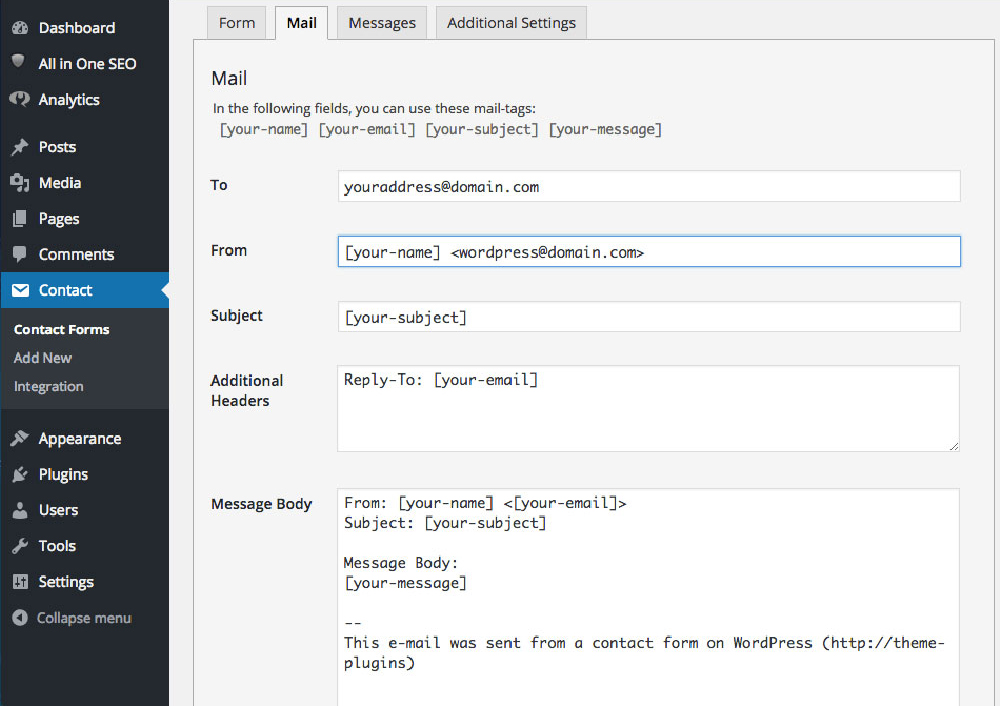
If we check the time needed to add a standard contact form to your website after the plugin gets activated, Contact Form 7 is going to be the faster one. Because it is free on WordPress it takes just a few clicks to get it on your dashboard.
After you activate it you can discover the plugin functionality in the Contact area of your WordPress dashboard. Contact Form 7 has all the basic fields that you would need for a contact form and can be inserted into any page or section of your website using shortcodes.
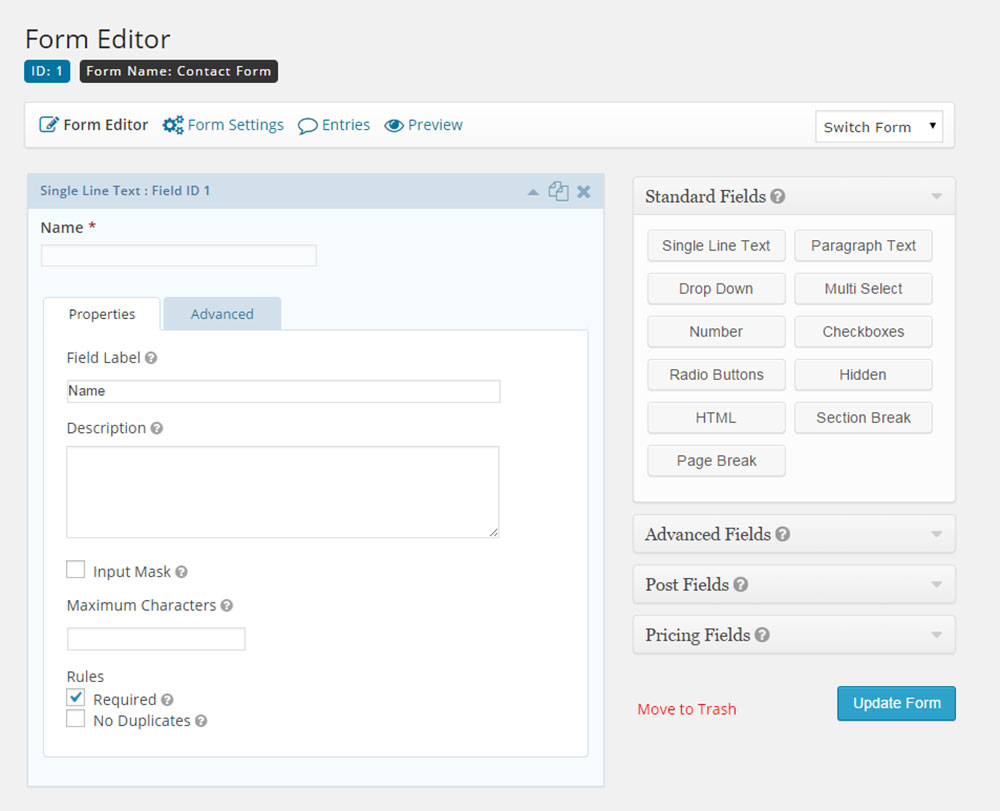
Gravity Forms will take a bit more time to install because you need to buy the plugin first.
After that, you upload the archive to the WordPress site and activate it. Of course,you’re not going to lose hours of time with this step and it only takes a matter of minutes until you can get started.
Features
Contact Form 7

Let's check out some of the highlights of Contact Form 7:
- You can embed a form easily into a post or page using shortcodes
- It is completely free and open source
- It can be used to create advanced forms with custom fields
- It protects you from spam with Akismet
- It has a huge amount of good reviews and millions of active installs
- It has extensive documentation and an active support forum
- CAPTCHA, file uploads, quizzes, and more
Gravity Forms
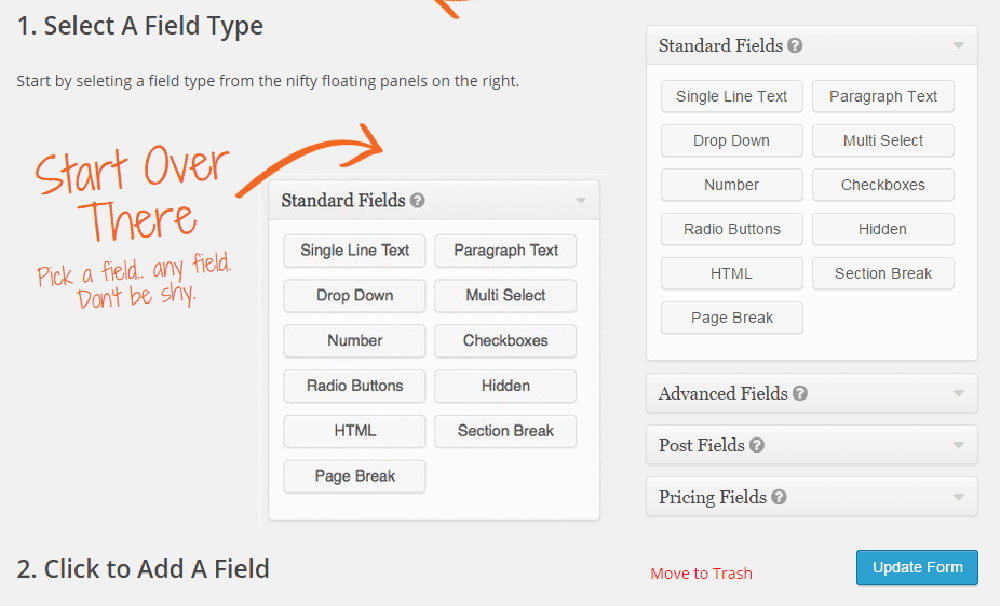
Let's check out some of the features that are included in Gravity Forms knowing that this is not a free plugin.
- It's not free but it is open source
- It has a drag and drop form builder that is very easy to use
- It includes 30 form fields ready to be added to your forms
- Form styling is customizable with CSS
- Supports conditional logic on certain form fields
- File uploads, reCAPTCHA, email notifications, and more
As you can tell, comparing Contact Form 7 vs. Gravity Forms is no easy feat in terms of features, since they both provide similar base functionality and both are highly suitable for almost all contact form needs.
Ease-of-use and customization
Contact Form 7

What is nice about WordPress Contact Form 7 is the fact that you can create advanced HTML forms quite easily. You simply need to edit the default contact form and add some new placeholders and features and that is all.
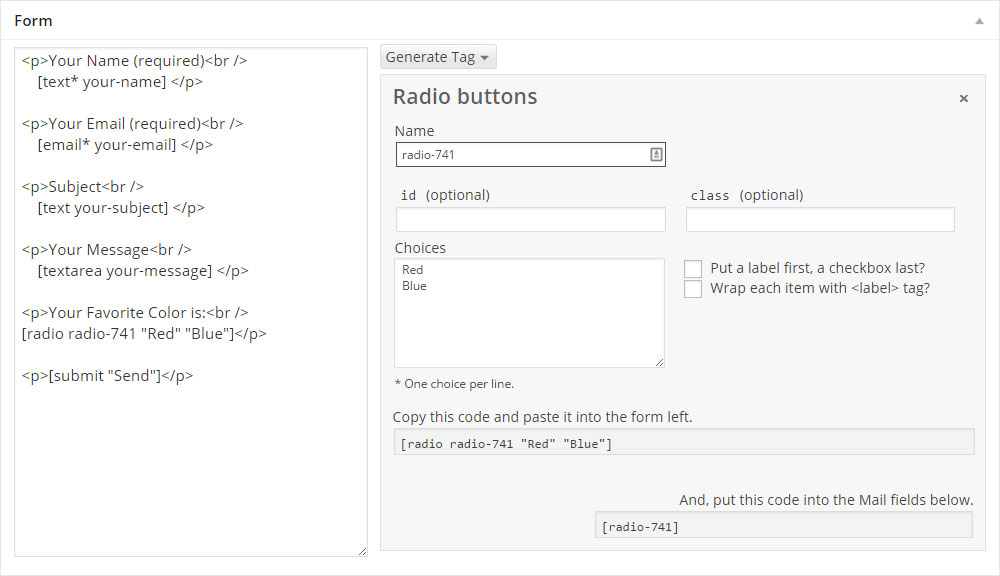
The interface that you see is not complicated and you can use auto-generated code snippets when you are building your forms. There are also some pre-built ones that you can add but don't expect a high number of them. If you want to get something more advanced then you need to be prepared to write your own code.
Gravity Forms
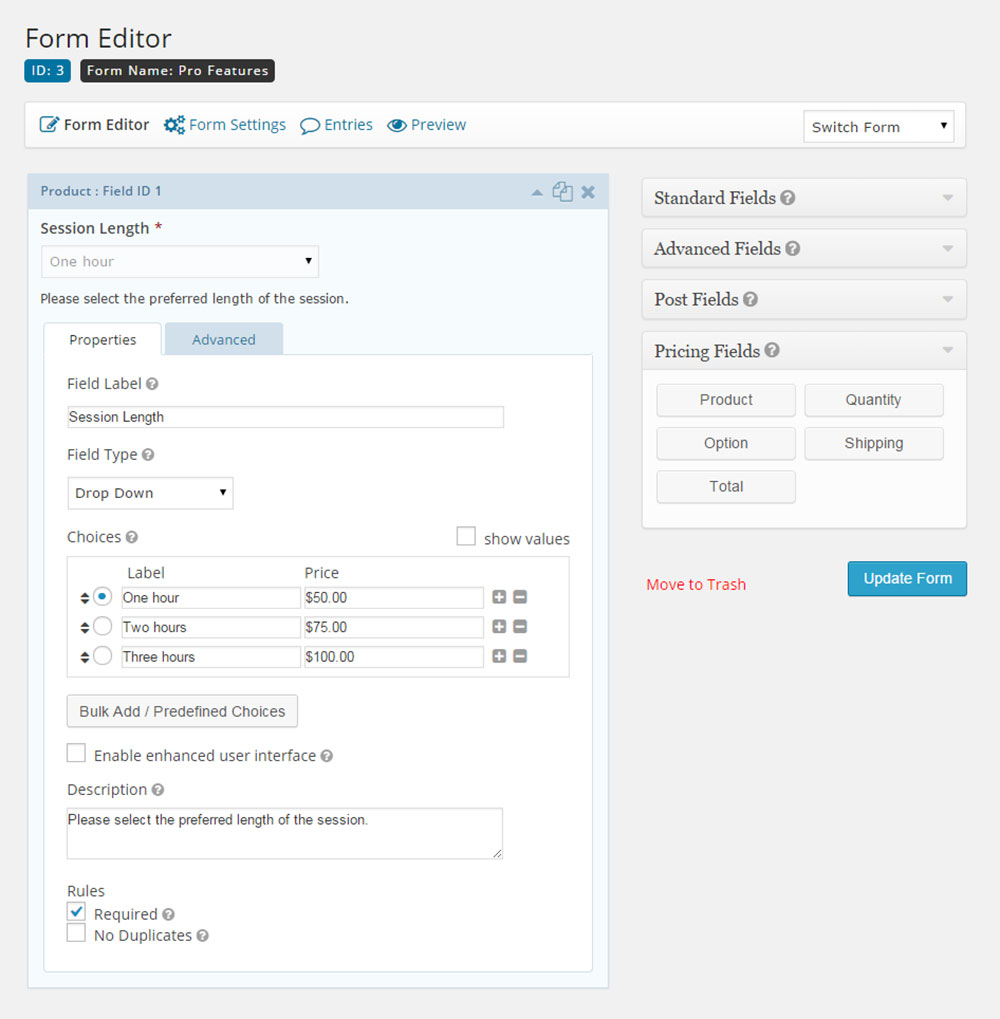
As we explore the Contact Form 7 vs. Gravity Forms features, we also discover that Gravity Forms offers a similarly simple design interface. Users can easily figure out what they need to include in the forms that they’re creating. They can also check out some pre-built elements and fields,although they might look a bit outdated without some extra styling.
As they offer a powerful drag and drop system this means getting the right form you need is a breeze. There are a few additional things you can do under the settings tab for your forms like adjusting the form layout or sub-label placement.
One of its missions is to help you save time as you can configure forms on-the-fly and the process is highly visual.
Pricing: Contact Form 7 vs. Gravity Forms
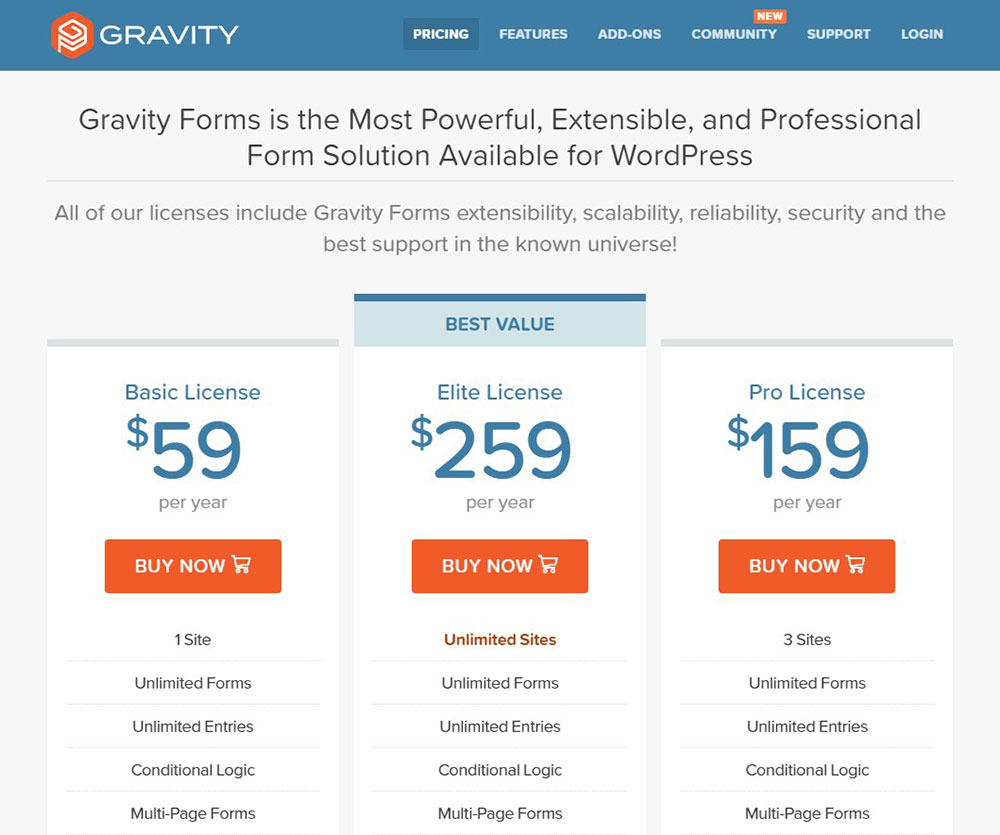
If we check the price of Contact Form 7 vs. Gravity Forms, we already know that one is free (Contact Form 7) while Gravity Forms only offers paid versions and each package has a different set of features. The 3 options that Gravity Forms offers are:
- Basic License - $59
- Pro License - $159
- Elite License - $259
What needs to be said, however, is that although Contact Form 7 is free, many of its useful add-ons are not. Whereas Gravity Forms has bundled many add-ons into the price of the plugin, Contact Form 7 requires you to pay for add-ons separately.
FAQ on Contact Form 7 vs Gravity Forms
Which is easier to set up: Contact Form 7 or Gravity Forms?
Man, I've been down this road before. If you're looking for a quick and straightforward setup, Contact Form 7 is your buddy. It's pretty basic and gets the job done. But if you're aiming for more advanced features and a polished user experience, Gravity Forms might take a bit longer to set up, but it's worth the effort.
How do the costs compare between the two?
Ah, the age-old question of price! So, Contact Form 7? It's free, my friend. Yep, you heard that right. But, if you're thinking about Gravity Forms, you'll need to shell out some cash. They've got different pricing tiers, depending on the features you're after. But remember, sometimes you get what you pay for.
Can I integrate other plugins or tools with them?
Totally! Both of these bad boys play well with others. Gravity Forms has a bunch of add-ons and integrations, especially if you're on one of their higher-tier plans. Contact Form 7? It's a bit more basic, but there are heaps of third-party plugins out there that can extend its functionality.
Which one offers better customization options?
Alright, diving into the nitty-gritty. Gravity Forms is like the Swiss Army knife of form plugins. It's got a ton of customization options, conditional logic, and layout designs. Contact Form 7? It's more like a regular knife. Does the job, but with fewer bells and whistles.
How's the support for both?
Been there, done that. If you're using the free version of Contact Form 7, support is mainly community-driven. It's decent, but you're kinda on your own. With Gravity Forms, since you're paying, you get access to their official support. And let me tell you, it's pretty darn good.
Are there any notable performance differences?
Performance-wise, both plugins are solid. But, if you're loading your forms with tons of fields and add-ons, Gravity Forms might handle it a bit smoother. Contact Form 7 is lightweight, but sometimes, with a lot of extensions, it can get a tad sluggish.
Which one is more beginner-friendly?
For someone just dipping their toes in? Contact Form 7 is super beginner-friendly. It's basic, straightforward, and does the job. But if you're ready to dive deep and explore, Gravity Forms has a steeper learning curve but offers way more in return.
How about updates and ongoing development?
Both plugins are in the game for the long haul. Gravity Forms regularly pushes out updates, given it's a premium product. Contact Form 7? It gets updates too, but sometimes not as frequently. Both have a strong community and are continuously evolving.
Can I use them for more than just contact forms?
Oh, for sure! While Contact Form 7 is primarily designed for contact forms, with the right extensions, you can do more. Gravity Forms, on the other hand, is versatile right out of the box. Surveys, quizzes, order forms – you name it, Gravity can handle it.
Which one is more mobile-responsive?
In today's world, gotta be mobile-ready, right? Both plugins are responsive, but Gravity Forms has a slight edge in terms of design and flexibility on mobile devices. Contact Form 7 is decent, but if mobile is a big deal for you, Gravity might be the way to go.
Conclusion on Contact Form 7 vs Gravity Forms
Choosing between Contact Form 7vs. Gravity Forms depends on what you are trying to achieve with your forms.
If you are looking for the most basic functionality so that you can create a simple contact form with only a few fields, then Contact Form 7 is the right plugin for you.It’s free, does what you need, and does it well.
On the other hand, if you are interested in building more complex forms with out-of-the-box support for third-party integrations, Gravity Forms may be a better bet. The bundled add-ons will let you quickly integrate other functionality, and the drag and drop system ensures that the increased complexity of your forms won’t hinder the process of creating them.
An alternative to both of them is represented by Formidable Forms. Make sure to check out their features as well and see if they're actually a better fit for your needs.
If you enjoyed reading this article on Contact Form 7 vs Gravity Forms, you should check out this one about how to fix the Contact Form 7 not sending emails.
We also wrote about a few related subjects like
Polylang vs WPML,
bbPress vs BuddyPress and
the best WordPress redirect plugin.


